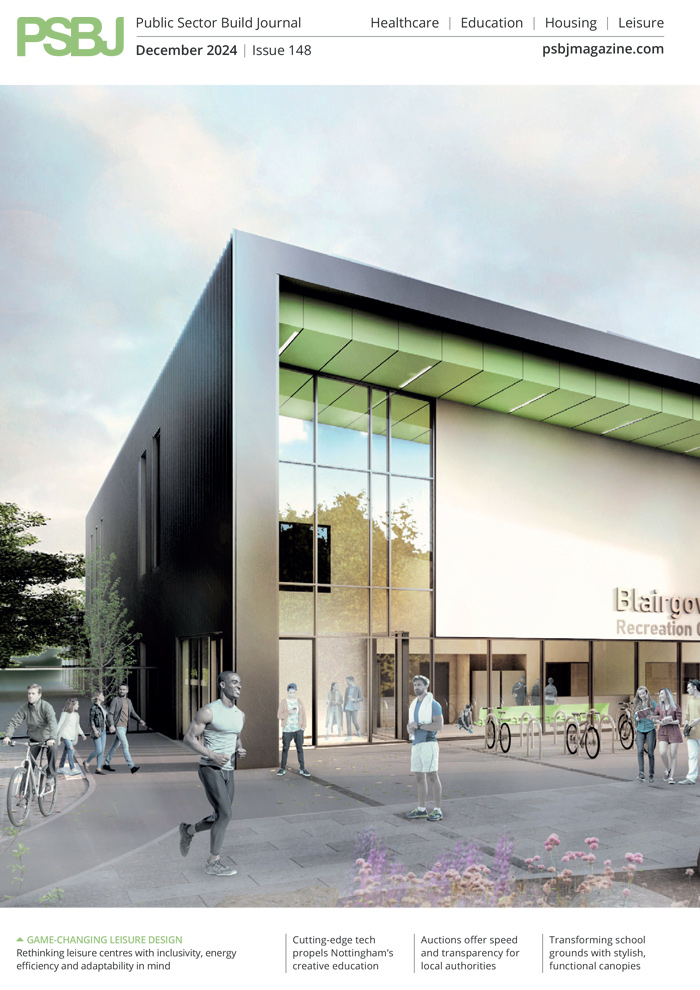There is an increasing realisation amongst those who deliver adult care that smart homes will play a vital role in closing the demographic care gap, and allowing people to stay in their own homes for longer.
Secure Meters
Nigel Ebdon, Market Development Manager at place-tech specialist Secure Meters (UK), discusses the issues surrounding our ageing population, and the results of a recent survey of adult care providers to discover what’s driving innovation.
The UK’s ageing population
The UK population is ageing. According to the ONS, there are currently over 12 million people aged 65 and above in the UK, and this figure is set to double over the next 30 years. By 2040, one in four people in the UK will be aged 65 or over.
The burden of healthcare in the UK has moved from tackling infectious diseases to managing chronic age-related conditions such as heart disease, diabetes, dementia and cancer. These diseases are placing a growing burden on the UK’s health and social care services, which are already at breaking point.
The Internet of Things (IoT) and independent living
Care providers, such as social landlords and local authorities, are increasingly seeking or developing innovative new ways to better support vulnerable people.
Most older people want to retain their independence and stay in their own homes for as long as they possibly can; however, this is not always possible, with resources dictating that they’re placed in residential care. For local authorities, the cost of providing care for vulnerable residents is a significant and growing burden.
Care providers often talk about helping people achieve their desired life outcomes, and from my perspective, this means technology enabling people to do as much as they can, for as long as they can.
Many of the care providers I talk to are currently facing the same challenge: the switch over from analogue to digital care technology. It’s a change everyone will eventually have to make, but some are using it as an opportunity to see what new technologies are now available; connected solutions that go way beyond existing capabilities.
Survey results
We recently surveyed a sample of social landlords, local authorities and in-home care providers to discover what is motivating the uptake of innovation, what technology is being deployed or considered, and whether strategy or problem-solving is driving innovation in this sector.
Almost half of respondents stated that improving welfare is the most important factor driving innovation in their organisation, with just over 60% selecting increasing efficiency and reducing the cost of care as the second most important factor. These numbers suggest that most are taking a person-centric approach, which puts the needs of the tenant/client ahead of cost savings.
An example of innovation in this area is Salford-based, housing association Salix Homes, which is working to integrate housing with health and social care.
Salix is working in partnership with Salford University and the Salford Royal NHS Trust to develop person-centred, low-cost, tech-based solutions, including ambient living and remote healthcare management systems. These should help tenants to remain in their homes for as long as possible, and promote better health and social care outcomes.
One such system is an off-the-shelf gaming console which detects and learns behavioural patterns. By learning what is ‘normal’, this connected device can share information via an app when something ‘abnormal’ is detected.
For example, if someone that is normally active is suddenly sitting for long periods of time, this could indicate a physical or emotional issue which requires intervention.
It is no surprise that nearly 70% of respondents have deployed wearable technologies and over 50% have installed security solutions such as press-key activated doors, as these have been available to the market for a number of years and are well-known and understood – although the feedback we have received is that wearable solutions can be unreliable as the user has to remember or choose to put them on.
Nearly half of respondents have installed smart home devices, and close to 40% have installed voice-activated devices, perhaps reflecting the increased popularity in recent years of these items in the consumer market.
There has been a low uptake of technology such as real-time health monitoring sensor alerts (23%), instant Skype calling (8%) and video/tele health consultations (0%), and surprisingly close to 10% are yet to deploy any independent living technology at all.
An early adopter of a range of technologies is Hampshire County Council. Four years ago they decided to make greater use of assistive care technology, and have incorporated a range of solutions including alarms, sensors, GPS trackers for people with dementia and medication reminders into the care packages they provide.
Over 9000 people across Hampshire are currently benefiting from assistive technology, with 100 new referrals being made each week. A feedback survey of their care recipients discovered that 94% feel that care technology has “increased their feelings of safety and security” and 98% would recommend the service to others.
Uptake is imminent
We went on to ask our survey respondents what independent living technologies, if any, they are considering. The responses demonstrate that the uptake of a wide range of technologies is imminent. With over three-quarters of respondents considering the installation of smart home devices and 60% considering the installation of voice-activated technologies.
A third of respondents are considering real-time health monitoring sensor alerts, reflecting the development and awareness of this type of solution.
The survey also revealed that 25% of respondents aren’t receiving any feedback at all on the quality of care being delivered to tenants/clients. We’re acutely aware of this long-standing challenge at Secure Meters, and have recently launched Beanbag Care: Quality Care Assured, a service that enables real-time feedback on care quality directly to the provider from both the service user and their family.
Quality Care Assured, one solution from Beanbag Care’s suite of services for independent living, allows care providers to proactively measure the frequency and standard of care received by an individual carer at any time, and then allows this data to be further shared with the Care Quality Commission (CQC) as part of the audit procedure.
Beanbag Care’s Quality Care Assured also enables the user’s family and loved ones to check that care has been delivered via a smartphone app, through which they can also leave feedback. We’re proud that this solution was recently awarded a position on ESPO’s Homecare Monitoring and Scheduling Solutions framework.
Beanbag Care, by property technology innovator Secure Meters, offers a suite of services to support independent living. Beanbag Care’s Quality Care Assured is now available through the ESPO public sector procurement framework www.espo.org/framework.











